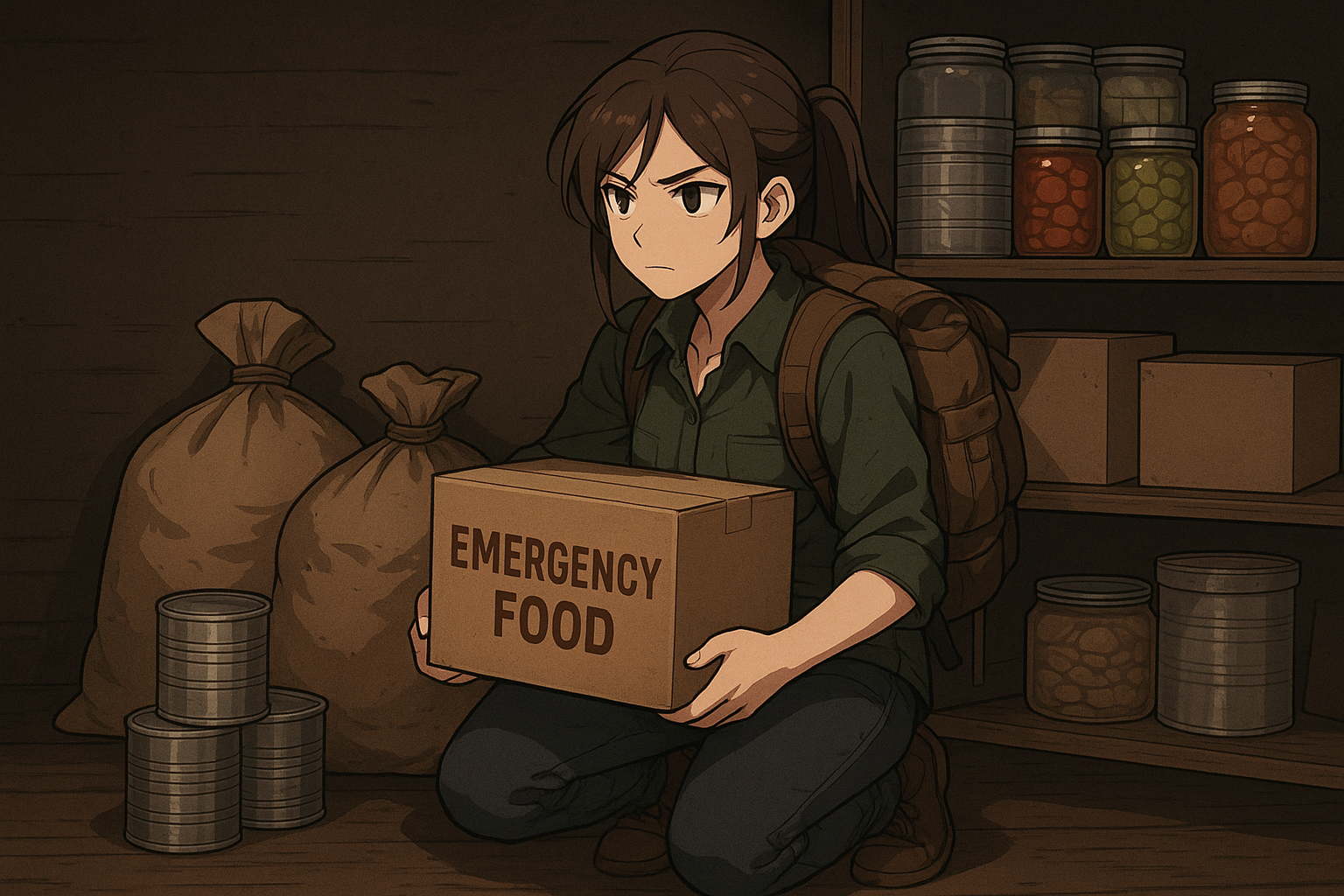When it comes to survival or simply being prepared for emergencies, long-term food storage isn’t just a prepper’s hobby — it’s a smart, practical habit that can save you and your family from panic when shelves go empty. Whether you live in a city apartment or a countryside cabin, learning the basics of emergency food storage is the first step to real self-reliance.
🧭 Why Long-Term Food Storage Matters
Disasters rarely send invitations — floods, power outages, wars, or even supply chain problems can hit anytime. Having a well-stocked food supply means peace of mind. It’s not about fear; it’s about being ready for the unexpected.
Think of it as an investment — not just in food, but in security, comfort, and control over your future.
🥫 What Is “Emergency Food Storage”?
Emergency food storage is a system of keeping non-perishable foods that can last months or years without spoiling.
It usually includes:
-
Canned goods (beans, vegetables, tuna, soups)
-
Dehydrated meals
-
Rice, pasta, and grains
-
Freeze-dried fruits and vegetables
-
Powdered milk or protein mixes
These foods are chosen for their long shelf life, easy preparation, and high nutritional value — perfect for surviving during uncertain times.
🧩 Planning Your Food Storage System
Before you start filling your shelves, plan smart:
-
Calculate portions. Figure out how many calories your household needs daily. For example, an adult usually needs about 2,000–2,400 kcal/day.
-
Start small. Begin with a one-week supply, then expand to one month, three months, and finally a year.
-
Choose familiar foods. Store what you actually eat — you don’t want surprises when things get tough.
-
Consider allergies and preferences. Variety prevents “food fatigue,” especially when supplies are limited.
🧊 The Golden Rules of Food Storage
-
Keep it cool and dry. Heat, moisture, and light are enemies of food longevity.
-
Rotate regularly. Use older items first, and replace them with new ones.
-
Label everything. Write the purchase and expiration dates clearly.
-
Seal properly. Oxygen absorbers, Mylar bags, and airtight containers extend life dramatically.
These small habits turn a pile of cans into a reliable emergency pantry system.
🌾 The Hidden Benefits You Might Not Expect
Long-term food storage isn’t just about survival — it’s also about saving money and reducing waste. Buying in bulk and preserving foods at home helps you:
-
Cut grocery bills.
-
Avoid unnecessary supermarket trips.
-
Build a healthier relationship with what you eat.
Plus, during global crises, your pantry becomes more valuable than gold.
🧭 Final Thoughts
Understanding the basics of food storage is like learning the alphabet of preparedness. It’s not complicated — it’s consistent. Each jar, can, and bag you store adds another layer of safety for your family.
When the world gets chaotic, your pantry will be calm, organized, and ready. That’s not paranoia — that’s wisdom.

